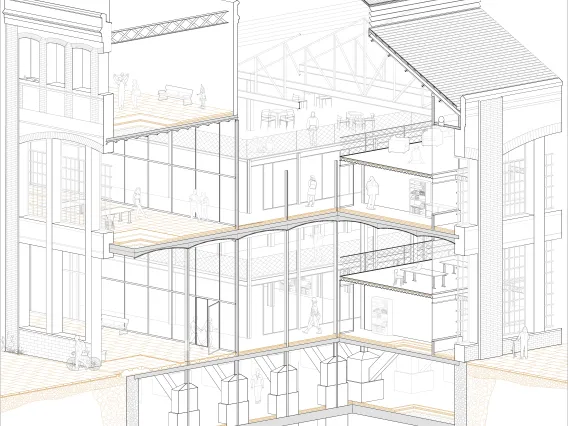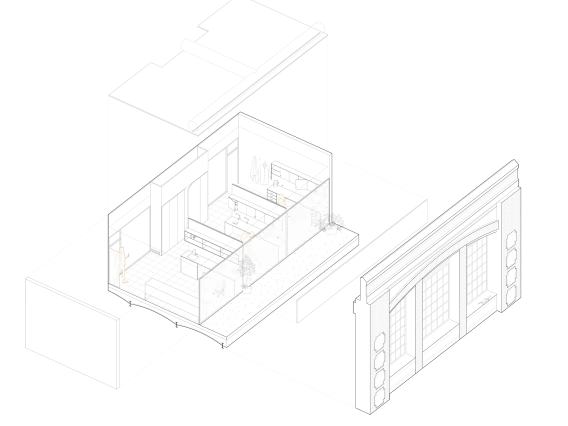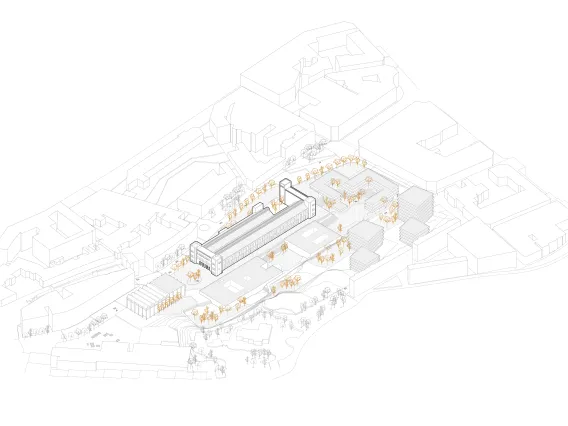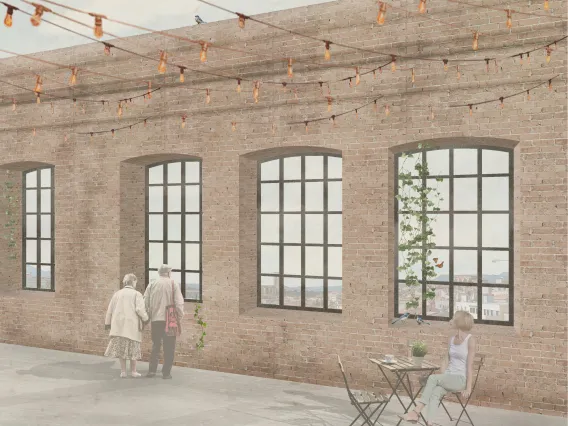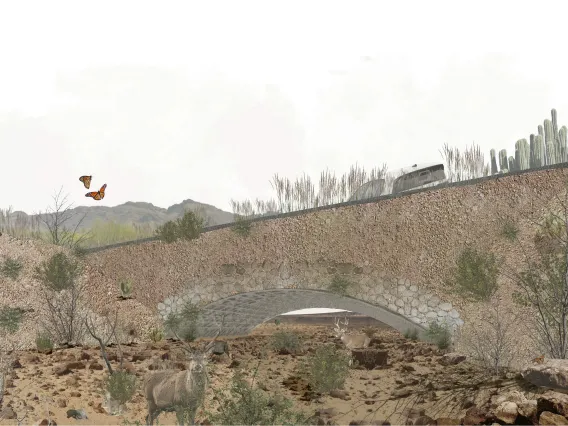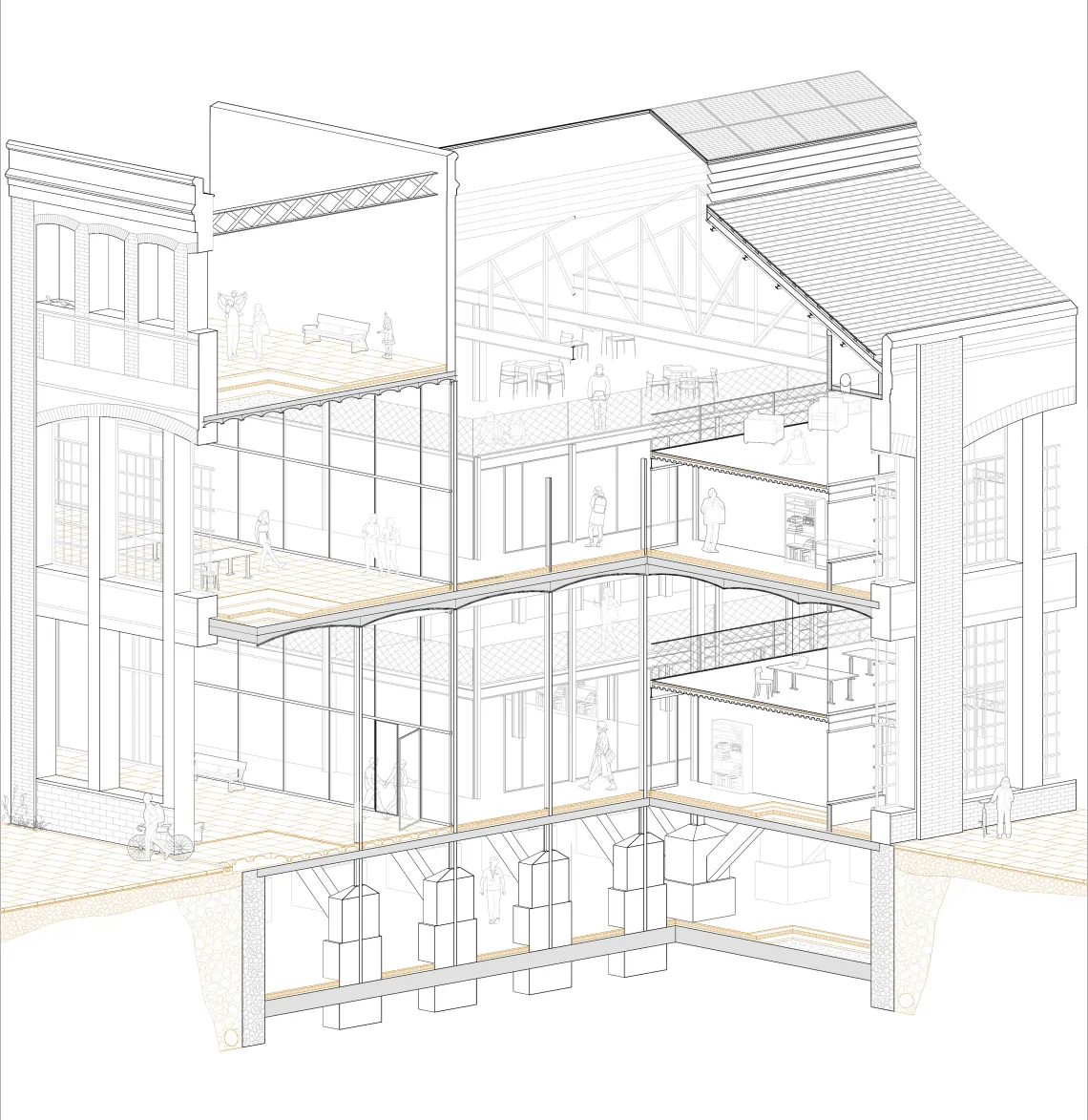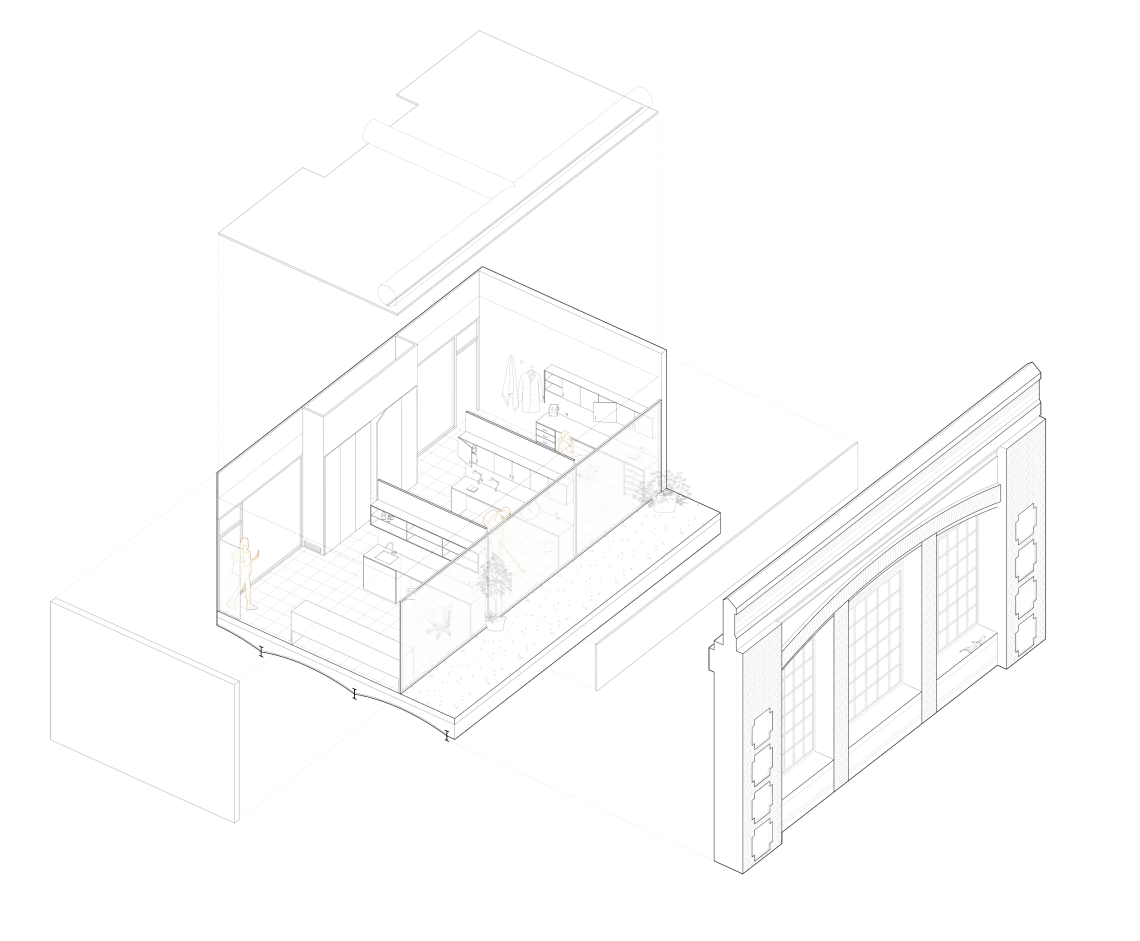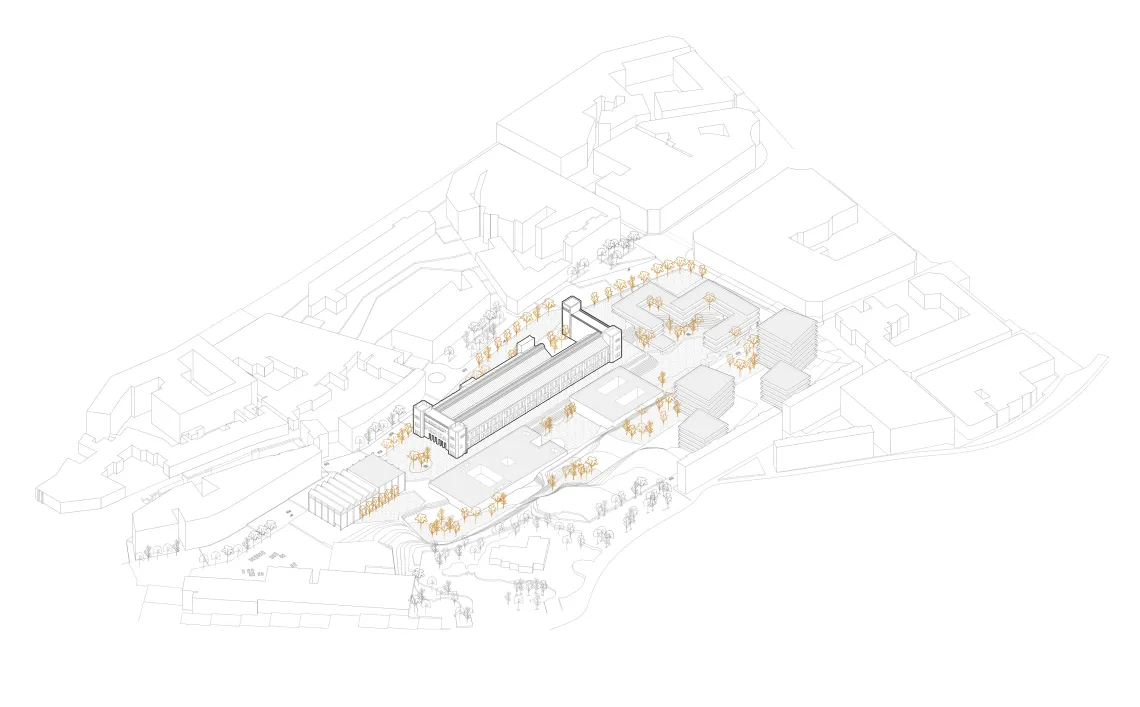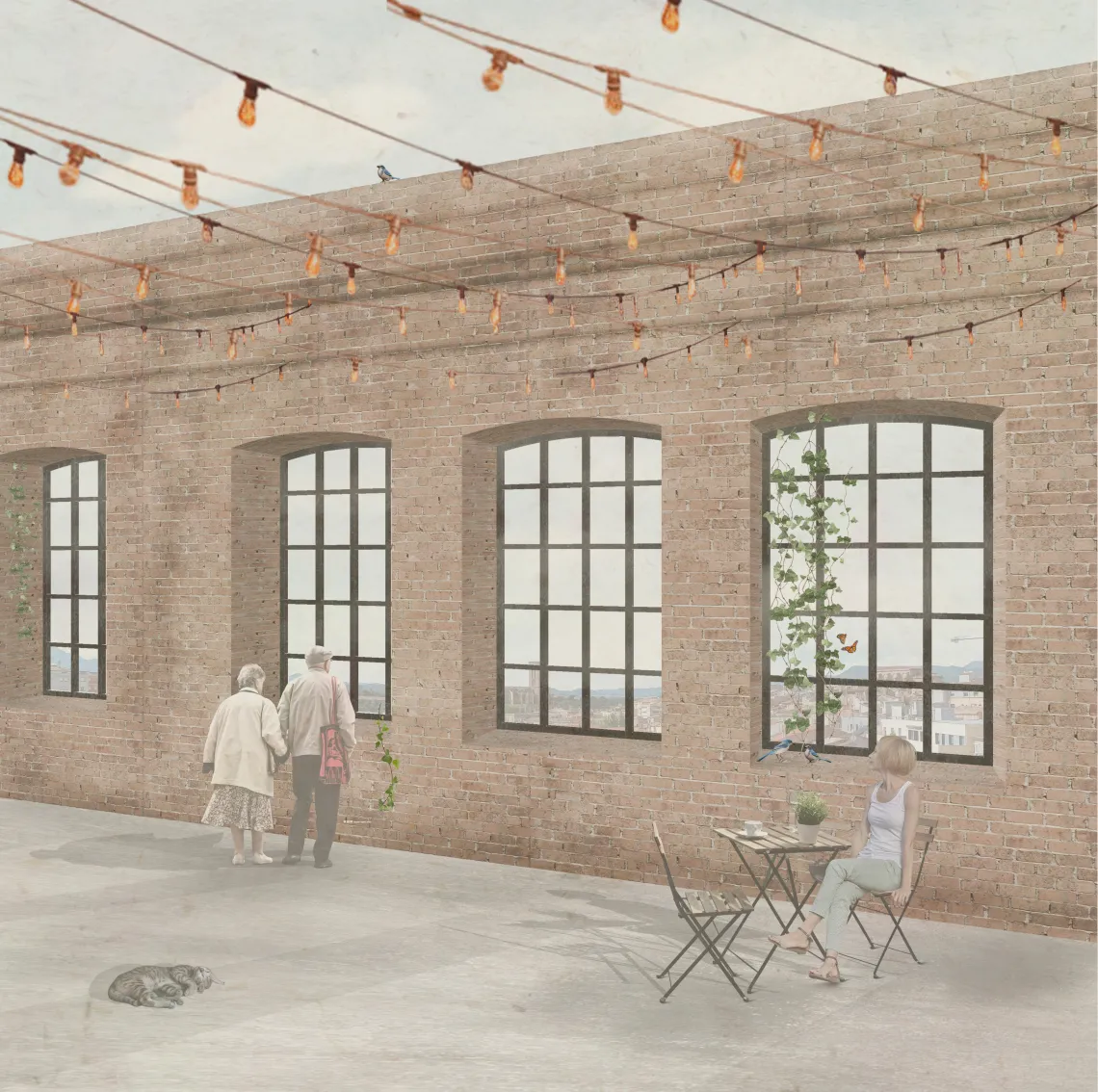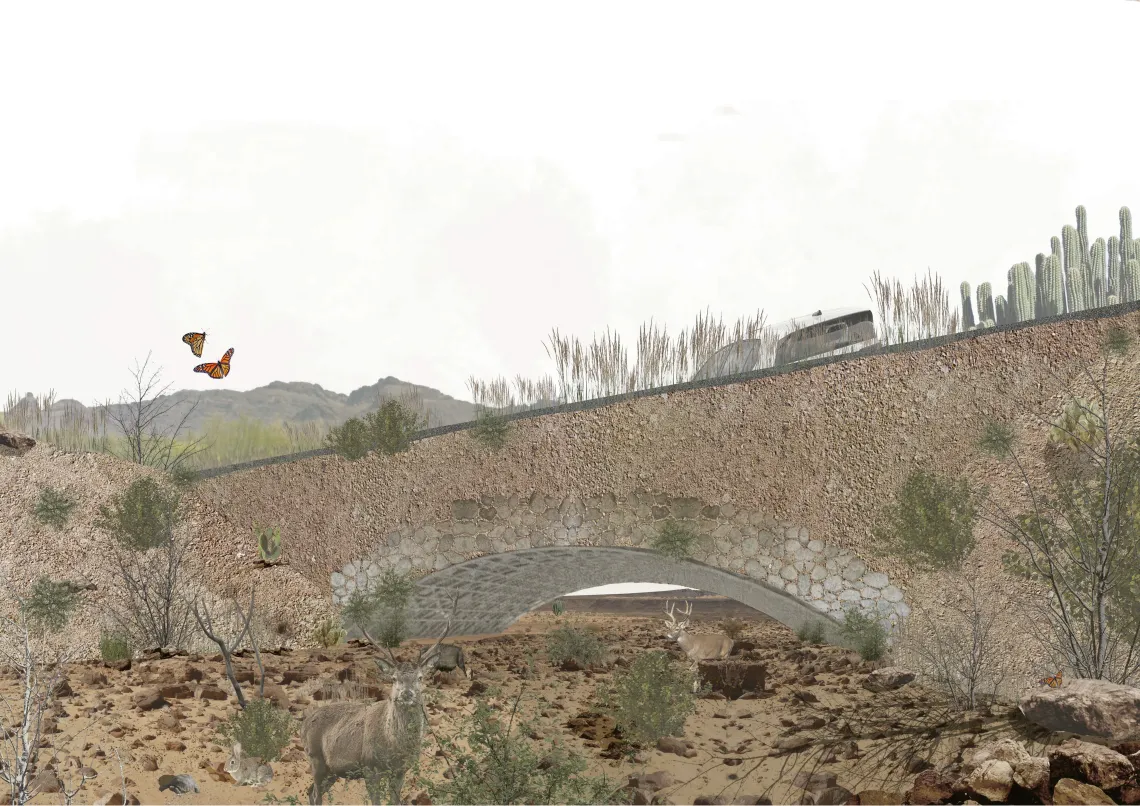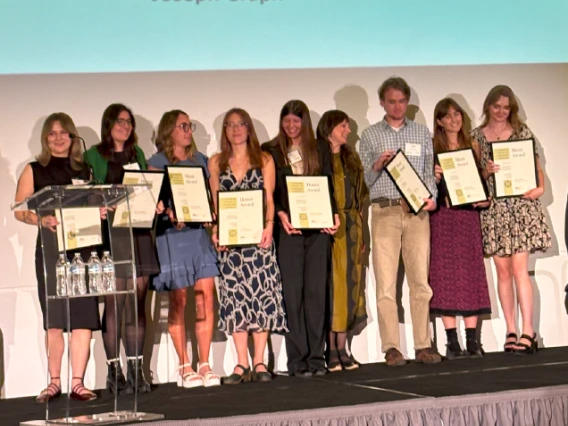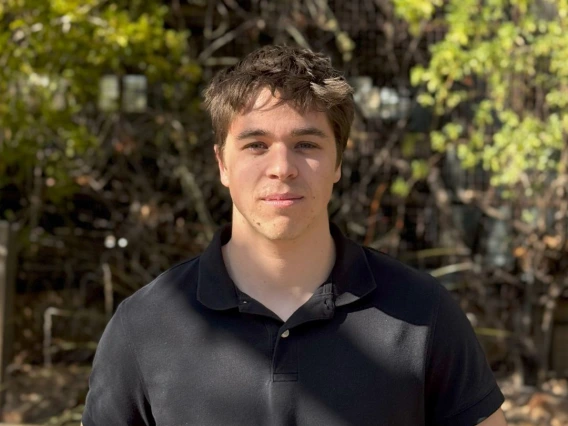Inspired by Home: Montse Bover '25 MS. Arch
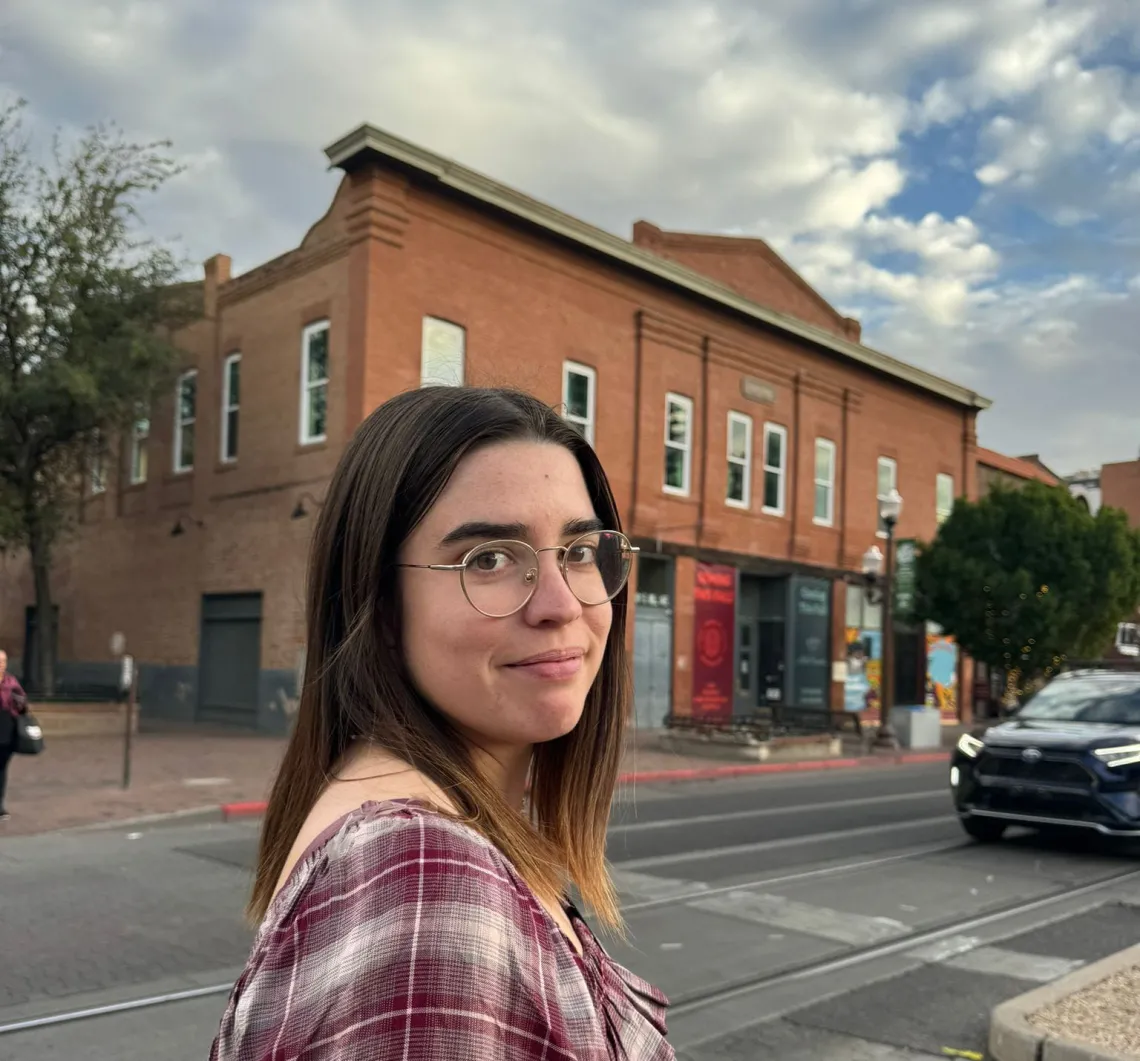
Eight Questions with Masters of Science in Architecture Student Montse Bover
“In the current era where there is much appreciation for architectural heritage from various styles and historic contexts, I feel like farmhouses are a type of architecture that is kind of forgotten due to the notable improvements that were taking place in bigger cities in the same decades.”
Inspired by stories shared by family in Spain, Montse Bover dreams of diving into the intricacies of the relationship between farmhouses and society. CAPLA’s Masters of Science in Architecture program gave her the flexibility and resources she needed to take her education to the next level.
What brought you to CAPLA to study as a master's student?
I chose to pursue the Masters of Science in Architecture program at CAPLA mainly because of the research-based curriculum and the opportunity that the program offers for each student to frame their research in the field that interests them the most, always with an architectural perspective. The flexibility of the program, which allows students to take classes from other colleges as electives, has also helped me expand my knowledge about the relationships that exist between architecture and other fields, such as sociology or preservation of materials. With that, I have also had the chance to apply for a Certificate in Historic Preservation, which had been one of my main interests throughout my previous undergraduate studies. Another great thing that I have noticed about CAPLA is the amount of opportunities that are shared with the students, such as contests, scholarships or internship opportunities, so you can get the most out of your academic experience.
What got you interested in doing research?
My first research experience was in the last year of my Bachelor's in Architecture when I was asked to develop a research project as part of the requirements for obtaining the degree. Until then, all the research I had done had always been based on site analysis before the design and development of an architectural project, with the result always being a building or public space. It was not until I did my final degree thesis that I realized that many fields can be researched related to architecture, and also how architecture is directly connected to other fields such as society, history, material sciences, etc. This discovery made me want to get more into research and explore the relationships between architecture and other disciplines, without the final product of designing a building.
Describe your current research project.
This semester, I have started to work on what will be my Master's Thesis, which is located in my hometown, a small village near Barcelona, Spain. As of right now, I have begun to study the agricultural background of the town, which has intrigued me while growing up due to the amount of farmhouses that can be found there. Throughout the years I have noticed many changes in the town’s landscape, which has adopted a more urban appearance, and farmhouses and rural landscapes have been left behind.
Why is this project important to you?
I have lived in the same village all my life, and throughout the years I have noticed many changes due to urbanization, as well as the decrease of agriculture as an important economic factor. As a result, I have discovered many abandoned farmhouses and I always wondered what led them to their current state, is it because their owners do not see any benefits in maintaining them? Is it for economic reasons? Are there laws that make the maintenance more complicated?
I grew up listening to my grandparents' stories about their experiences and daily lives, and in those decades farmhouses were a direct representation of society’s traditions and routines. From there, I became very interested in exploring the relationships between architecture and society and how architecture reflects and communicates traditions, construction methods and lifestyles. In the current era where there is much appreciation for architectural heritage from various styles and historic contexts, I feel like farmhouses are a type of architecture that is kind of forgotten due to the notable improvements that were taking place in bigger cities in the same decades. With this project, I would like to raise awareness about that fact and share the historic importance of these typologies of buildings.
What are your career goals?
In the future, I would enjoy finding a job where I can combine fieldwork with research. Preservation and restoration is something that I find very interesting and I also think that it combines all my interests: visiting existing buildings that might need repairs or small interventions, understanding what they are made of, what is not working properly and finding a way of fixing it with the correct materials. A different path related to building maintenance that nowadays is very common would be the rehabilitation of existing buildings to convert them into more useful spaces for the current population. I think that these types of jobs combine many of my interests. I believe that in the preservation field, you get to learn a lot about different construction methods, traditions and cultures as well, which is something that I find very interesting.
How is your experience in this program setting you up for success in the future?
This program has opened many doors in different areas. First of all, I have learned to conduct research, which is something that I can continue working on independently of whatever job I might have in the future. Secondly, I have discovered specializations and types of jobs that I didn't know existed, which combine many of my interests and that I have been able to apply for. Finally, from being an international student I have learned how to deal with new situations that I had never encountered before, such as applying for jobs in a different country or participating in conferences.
What have you found most unique about this program?
I think the most unique thing about the program is its flexibility and the research focus. The program allows students to fully focus on their main interest and “specialize” in a specific field of architecture. At the same time, it also offers the opportunity to explore other courses from different colleges to learn new skills that might not be directly related to architecture, but can give you skills that can be applied to architecture.
What advice do you have for prospective students?
Since this is a program where most of the unit weight falls into electives, I recommend that students explore classes in other colleges that they might be interested in. They’ll help you expand your knowledge about a topic that might be interesting to you. However, I would also suggest being aware of your time and not getting yourself into too many classes. Another recommendation would be to try to have a set schedule to make sure you keep track of the classes, especially with online courses. Sometimes with these types of courses, it can be easy to forget about assignments due to not having weekly lectures and prioritizing other courses where you see your teachers more often. This is why I have found it helpful to write down every week’s assignments to make sure I keep track of everything. This has turned out to be very helpful when entering the beginning of the Master’s Research Thesis where you do not have weekly assignments, and even though you meet with your advisor, you have to learn to work independently and set your own goals to keep the research going.

